Addiction Resources for Families
- Reign Residential Treatment Center
- Addiction Resources for Families
Addiction Resource Guide for Families & Loved Ones
Addiction can have a devastating impact on not only the individual struggling with substance abuse but also their families and loved ones.
- Written By: Reign RTC
- Clinically Reviewed By: Catherine Manly, LMHC
- Updated:
Solutions for Families & Loved Ones
Addiction Impacts Everyone.
Table of Contents
Family members need to understand the challenges they face and find support to navigate this difficult journey.
This resource guide provides valuable information, resources, and guidance on how to help families of addicts.
Reign Residential Treatment Center is a top-rated drug and alcohol treatment center in Davie, Florida. Contact us today to learn more about how we can help you or a loved one overcome addiction.
ADDICTIONS WE TREAT
Understanding Addiction & Its Impact on Families
What Exactly is Addiction?
Addiction, also referred to as substance use disorder, is a complex and chronic disease characterized by the compulsive and uncontrollable use of a substance despite harmful consequences. It involves changes in the brain's structure and function, leading to a heightened craving for the substance and difficulty in controlling its use.
How addiction affects society
The Cycle of Addiction
The cycle of addiction typically follows these stages:
Initiation
This is when a person first tries the substance. It may be due to curiosity, peer pressure, or other factors.
Regular Use
As the person continues to use the substance, they may experience pleasurable effects, leading to repeated use.
Tolerance
Over time, the body adapts to the substance, requiring larger amounts to achieve the same effect. This leads to increased consumption.
Dependance
Physical and psychological dependence develop, causing withdrawal symptoms when the substance is not used. Dependence can drive continued use.
Addiction
At this stage, individuals have lost control over their substance use. They continue using despite adverse consequences and may prioritize obtaining and using the substance above all else.
Negative Consequences
Addiction often leads to negative consequences in various aspects of life, including health, relationships, finances, and legal issues.
Attempts to Quit
Many individuals with addiction make repeated attempts to quit or reduce their substance use but often relapse due to the powerful grip of addiction.


It only takes a minute for the journey to start.
How Addiction Impacts the entire family unit
The Effects of Drug Addiction on Family Members
Drug addiction can have profound and far-reaching effects on the family members of the person struggling with addiction. These effects can be emotionally, financially, and socially challenging, creating a significant burden for those involved. Here are some of the key ways in which drug addiction impacts family members:
When you arrive at an addiction treatment center in South Florida, the first step on your treatment journey involves working closely with members of our medical and mental health treatment teams to develop a treatment plan. During the first days in a South Florida rehab, providers will meet with you to conduct a thorough assessment. This process helps them learn more about your current mental and physical health, medical history, and previous experiences with addiction treatment and relapse.
- Stress and Anxiety: Family members often experience high levels of stress and anxiety due to the unpredictability of the addicted person’s behavior, concerns for their safety, and the emotional toll of dealing with addiction.
- Guilt and Shame: Family members may blame themselves for the addiction or feel ashamed of their loved one’s behavior. This can lead to a sense of helplessness and self-doubt.
- Depression: Living with addiction can lead to feelings of sadness and hopelessness. The constant worry and fear for the addicted family member’s well-being can contribute to depression.
- Isolation: Family members may withdraw from social activities and relationships due to the stigma associated with addiction or the need to hide the problem.
- Anger and Resentment: The behaviors associated with addiction, such as lying, stealing, or neglecting responsibilities, can lead to anger and resentment within the family.
- Financial Depletion: Addiction often leads to increased spending on drugs or alcohol, which can deplete family savings, cause financial instability, and lead to debt.
- Legal Costs: Legal problems stemming from the addicted person’s behavior, such as DUIs or drug-related offenses, can result in significant legal expenses.
- Job Loss: The addicted family member’s inability to maintain stable employment can strain the family more financially.
- Marital Conflict: Addiction can strain marriages and partnerships. Spouses may disagree on how to handle the situation, and the emotional toll can lead to marital conflicts.
- Parent-Child Relationships: Parent-child relationships can suffer as a result of addiction. Children may feel neglected, unsafe, or burdened by their parent’s addiction.
- Siblings: Siblings of the addicted individual may experience a lack of attention and emotional support, which can lead to rivalry and jealousy.
- Criminal Charges: Family members may need to deal with the legal consequences of the addicted person’s actions, such as bail, court appearances, or even incarceration.
- Child Protective Services: In cases where children are involved, the addicted person’s actions can result in involvement from child protective services, potentially leading to child removal or placement in foster care.
- Neglect: Addiction can lead to neglect of children’s basic needs, including proper care, nutrition, and supervision.
- Instability: Children may experience a lack of stability and consistency in their lives, as addicted parents may struggle to maintain routines or provide a secure environment.
It's essential for family members to seek support and assistance when dealing with a loved one's addiction. This can include attending support groups like Al-Anon or Nar-Anon, seeking therapy or counseling, and exploring intervention and treatment options for the addicted individual. Addressing addiction as a family unit can improve the chances of successful recovery and healing for everyone involved.
health insurance can pay for rehab
We Work With Most Major Insurance
Your health insurance can help cover up to 100% of the costs associated with treatment at Reign Residential Treatment Center. Find out your personal options for treatment with a free insurance verification right now.










How to Manage the Emotional Distress of Substance Abuse
The Emotional Tolls on Family Members
The emotional toll on families dealing with a loved one's addiction can be incredibly challenging and complex. Here are some of the key emotional struggles that family members often experience:
- Self-Blame: Family members may blame themselves for their loved one’s addiction, wondering if they could have prevented it or done something differently.
- Social Stigma: There can be a sense of shame associated with addiction, leading family members to feel judged or stigmatized by society and even within their own social circles.
- Denial: Family members may initially deny or downplay the severity of the addiction, hoping that the problem will resolve itself or believing that it’s just a phase.
- Enabling: In an attempt to protect their loved one, family members may inadvertently enable the addiction by providing financial support, covering up consequences, or minimizing the negative effects of the addiction.
- Codependency: Co-dependency is a dysfunctional pattern where family members become overly reliant on the addicted individual, often at the expense of their own well-being. They may derive their sense of self-worth from taking care of the addict and neglect their own needs.
- Enmeshment: This occurs when boundaries between family members become blurred, making it challenging for family members to distinguish their own identities from the addicted person’s.
- Lack of Trust: Deception and broken promises by the addicted individual can erode trust within the family, making open and honest communication difficult.
- Avoidance: Family members may avoid discussing the addiction to maintain a semblance of peace, but this avoidance can lead to a breakdown in communication.
- Miscommunication: Emotional turmoil and stress can lead to misunderstandings and miscommunication within the family, creating additional conflict.
- Constant Worry: Family members often experience persistent anxiety and worry about their loved one’s safety and well-being, leading to chronic stress.
- Depression: The ongoing challenges of dealing with addiction can lead to depression as family members grapple with feelings of helplessness, hopelessness, and sadness.
- Health Consequences: The emotional toll can have physical health consequences, including sleep disturbances, weight changes, and other stress-related issues.

Finding The Right Treatment Options
How to Help an Addicted Family Member
Identifying signs of addiction in a loved one is crucial for early intervention and support. Substance use disorders can be subtle or overt, so it's essential to be observant. Here are some key aspects to consider:
- Increased Secrecy: The person becomes more secretive about their activities, whereabouts, or social circle.
- Mood Swings: Frequent and extreme mood swings, including irritability, anger, and depression.
- Loss of Interest: Disinterest in previously enjoyed activities, hobbies, or social interactions.
- Neglecting Responsibilities: Failing to meet work, school, or family obligations and responsibilities.
- Financial Issues: Unexplained financial problems, borrowing money frequently, or stealing to support the habit.
Physical Appearance: Noticeable changes in physical appearance, such as weight loss, poor hygiene, or unexplained injuries.
Health Problems: The person may experience health issues related to substance abuse, such as chronic coughing (in the case of smoking) or injection site infections (in the case of intravenous drug use).
Sleep Disturbances: Significant changes in sleep patterns, such as insomnia or excessive sleepiness.
Appetite Changes: Altered appetite, which can lead to weight gain or loss.
Tremors or Shakes: Physical symptoms like hand tremors or shakes, especially during periods of withdrawal.
Minimizing or Rationalizing: The person may downplay their substance use, insisting it’s not a problem or that they have it under control.
Blame-Shifting: They might blame external factors or other people for their substance use, avoiding personal responsibility.
Defensiveness: Becoming defensive or angry when questioned about their substance use or its consequences.
Justifying Behavior: Providing seemingly valid reasons for their substance use, such as stress relief or self-medication.
Avoiding Discussions: Refusing to engage in conversations about their substance use or becoming evasive when the topic arises.
Create a Safe Space: Foster an environment of trust and support where your loved one feels comfortable discussing their struggles without fear of judgment or anger.
Express Concerns Nonjudgmentally: Approach conversations with empathy and understanding rather than criticism. Use “I” statements to express how their behavior is affecting you and your relationship.
Listen Actively: Allow your loved one to express their thoughts and feelings. Avoid interrupting or passing judgment during the conversation.
Offer Help and Resources: Be prepared with information about treatment options and support resources. Offer assistance in seeking help when they are ready.
Set Boundaries: Clearly communicate your own boundaries and what you are willing and unwilling to tolerate in the relationship. Stick to these boundaries consistently.
Consult with a Specialist: If you suspect that your loved one is struggling with addiction, consider seeking advice from a substance abuse counselor, therapist, or addiction specialist.
Intervention Services: In cases where the person is resistant to seeking help, you should explore intervention services to facilitate a structured and supportive conversation.
Treatment Programs: Professionals can help you identify appropriate treatment programs, such as detoxification, inpatient or outpatient rehab, counseling, and therapy.
Support Groups: Support groups like Al-Anon or Nar-Anon can provide valuable guidance for family members dealing with a loved one’s addiction.
Recovery Begins Today
Contact Reign Residential Treatment Center to Find Treatment & Help For Addiction
Addiction presents formidable challenges, affecting not just the individual in its grip but also their family members. This resource guide provides families grappling with addiction information and support. By acquiring insights into addiction, reaching out for assistance, and prioritizing self-care, families can assume a pivotal role in the path to recovery, even amidst the most trying circumstances.
Recognizing that you're not navigating this journey in isolation is imperative. Countless resources and communities stand poised to extend their support and guidance, facilitating the process of healing and recovery for both you and your family member.
Contact Reign today to learn more about how our addiction rehab center in South Florida can help you or a loved one overcome addiction.
Resources
- https://www.samhsa.gov/families
- https://www.myflfamilies.com/services/substance-abuse-and-mental-health
- https://ncsacw.acf.hhs.gov/
- https://www.floridahealth.gov/programs-and-services/prevention/substance-abuse/index.html
- https://www.shatterproof.org/learn/addiction-resources/family-and-friends
- https://www.ncbi.nlm.nih.gov/pmc/articles/PMC3725219/
Free Help Available 24/7
Help Your Loved One Find Freedom
We aim to help everyone who contacts us. Whether our program makes sense for you or not, we will help you find the best treatment options that work best for your personal needs.

